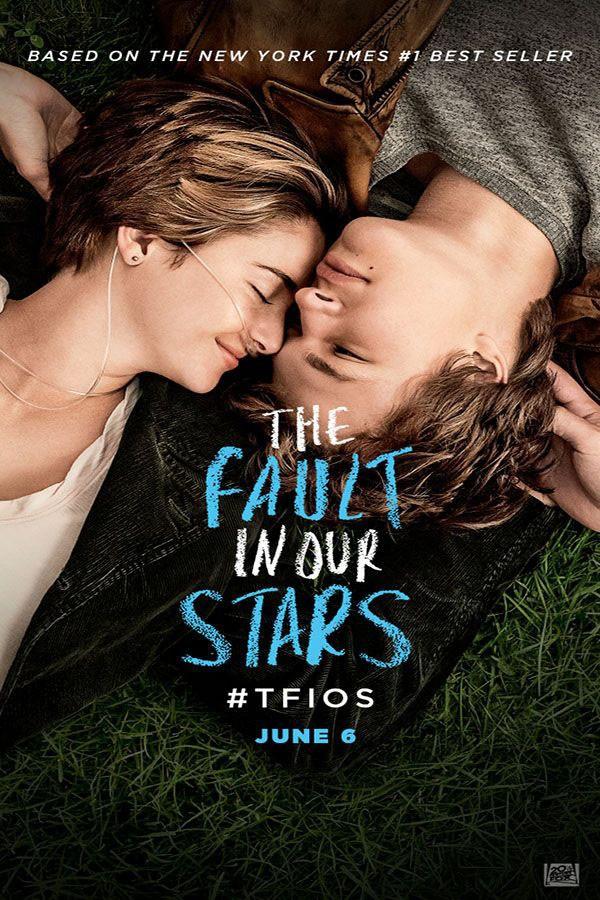Hollywood is rarely original, which means books are adapted into movies frequently to make money and attain acclaim. Every once in awhile, a film adaptation of a book will stand out, but not always in a good way. For the 2016 Tucson Festival of Books, the Daily Wildcat compiled a list of the best and worst film adaptations.
The Best:
“Jaws”: Chillingly graphic, relentlessly suspenseful and gruesomely scientific, Peter Benchley’s novel of the same name instilled a fear of the ocean in readers for years to come. While some of the finer scientific details were left out of Steven Spielberg’s film adaptation, many people remember it as one of the most iconic suspense films ever made. Add in the Academy Award-winning score by film composer John Williams and you’ve got one of American film’s masterpieces.
“The Fault in Our Stars”: John Green’s novel, at the intersection of young love and terminal illness, charmed and broke the hearts of millions of readers. The film adaptation magnifies the tone of the books. The relationship between Augustus Waters and Hazel Lancaster is vibrant. A modern classic, this book was already cinematic in all the right ways and made for an easy transition to film.
“Harry Potter and the Prisoner of Azkaban”: While fans were initially upset at Alfonso Cuarón’s darker and grittier vision of the Hogwarts School of Witchcraft and Wizardry than previous films, the ire quickly subsided when they realized the film portrays the third installment of Harry Potter’s magical journey with ease and style. Despite minor concerns that the film didn’t fully explain, the magnitude of the friendship of the Marauders and the way that Cuarón chose to continue the Harry Potter franchise was stunning and distinct.
“The Lord of the Rings: The Return of the King”: Having won all eleven Academy Awards for which it was nominated, “The Lord of the Rings: The Return of the King” represents the one of the highest crafts of fantasy film. Peter Jackson’s legendary and magnificent adaptation captures the minds and hearts of millions of viewers. Even J.R.R. Tolkien would be stunned by the scale of this record-setting adaptation.
“To Kill a Mockingbird”: Harper Lee’s Pulitzer Prize-winning novel openly engages morality, race and the innocence of children. Its film adaptation captures the spirit of the novel throughout its entirety. The 1962 film adaptation won several Academy Awards and is regarded as one of the best book-to-film adaptations ever made.
The Worst:
“Harry Potter and the Goblet of Fire”: The fourth installment of the Harry Potter series disappointed fans who considered the novel to be perhaps the best book in the series. In a film in which every male character’s hairstyle felt like 50 shades of Severus Snape, the film cut out one of the best scenes in the entire book: the third task of the Triwizard Tournament, in which Harry must negotiate a nefarious hedge maze. In addition to ignoring all of the most important canonic pieces of development in Harry Potter lore, this disappointed fans.
“The Hobbit”: This did not need to be three films. “The Hobbit” was a poor ploy for attention after the critical success of “The Lord of the Rings.”
“Eragon”: Christopher Paolini’s interesting and detailed first book in the Inheritance Cycle series, “Eragon,” was about a boy and his dragon who go on an adventure to overthrow an evil dragon-enslaving government. The film was irreverent and awful in so many ways. It earned a 16-percent rating on Rotten Tomatoes.
“The Da Vinci Code”: Mathematicians, codebreakers and mystery buffs may have found this book to be fascinating, though not exactly historically accurate. As a film, you’re better off watching “National Treasure.”
“The Hitchhiker’s Guide to the Galaxy”: Everything about this satirical masterpiece begged for a quality film adaptation and it did not deserve the treatment Hollywood gave it. As part of a slew of a science fiction and fantasy films released in 2005, it was overshadowed by “Star Wars III: Revenge of the Sith,” “The Chronicles of Narnia: The Lion, the Witch and the Wardrobe” and the aforementioned “Harry Potter and the Goblet of Fire.”
Follow Kincaid Rabb on Twitter









